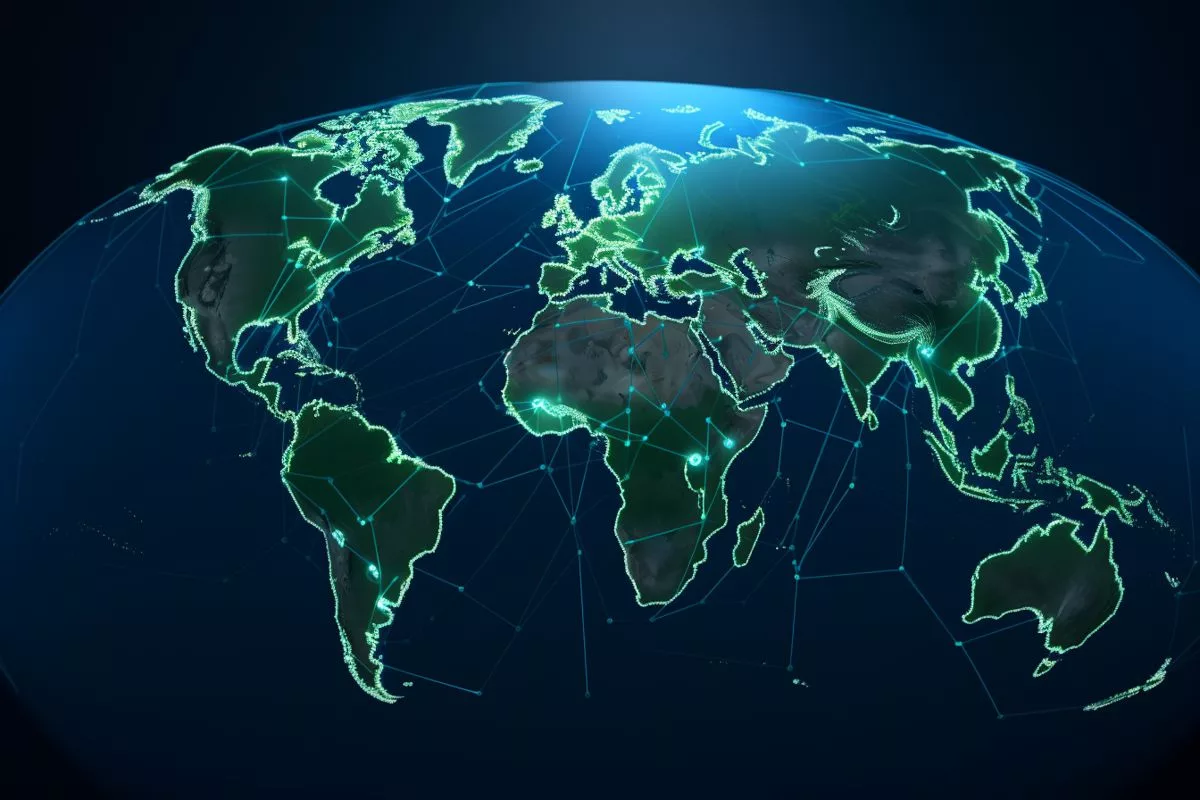Deputy President Paul Mashatile gave a talk about South Africa’s commitment to peaceful dispute resolution, economic objectives, and strategies to tackle current issues. He emphasized the importance of global partnerships and engaging beyond existing arrangements without undermining them. Mashatile acknowledged concerns surrounding energy availability, freight logistics, and visa regulation and detailed plans to address these issues. The government’s receptiveness to partnerships and people-oriented policies underline its resolve to bolster its global standing and make it an attractive destination for investors.
Deputy President Paul Mashatile sheds light on South Africa’s global standing, economic objectives, and strategies to overcome current hurdles. In his recent talk, he emphasized South Africa’s commitment to peaceful dispute resolution and its dedication to engaging beyond existing global arrangements without undermining them. Mashatile also expressed the government’s determination to tackle energy availability, freight logistics, and visa regulation issues urgently. The country’s receptiveness to global partnerships forms the bedrock of its strategy, making it an appealing destination for investors and other international entities.
Deputy President Shipokosa Paulus Mashatile recently expressed his perspectives on South Africa’s global standing, economic objectives, and strategies to surmount current obstacles at the Citi Bank South Africa Macro Trip Dinner. His statements provide a compelling view into the ambitions of the nation and its self-perception in the global stage.
Global Engagement and Economic Aspirations
Mashatile initiated his talk by expressing regret for his inability to participate in a business trip to the United Kingdom, which entailed a meeting with investors arranged by Citi Bank. He stressed, however, the critical role of such dialogues in comprehending South Africa’s place in the global framework.
The Deputy President highlighted South Africa’s dedication to peaceful dispute resolution, as demonstrated by its engagement in the Russia-Ukraine conflict. He articulated the country’s faith in conversation and consensus-formation, voicing its disapproval of war and inclination towards peaceful solutions.
Mashatile shed light on the successful 15th BRICS Summit as evidence of South Africa’s burgeoning economic promise. He restated the country’s commitment to engage beyond existing global arrangements without undermining them, thus articulating the balanced approach of the nation towards international relations.
Geopolitical Relations and Economic Partnerships
In response to concerns regarding geopolitical relations, Mashatile underscored the stability of South Africa’s relations with the United States. Asserting the nation’s dedication to further strengthening these ties, he drew attention to areas like health, education, and the economy where mutual cooperation is a focus. He further highlighted the importance of the 20th African Growth and Opportunity Act (AGOA) agreement, indicative of strong trade relations between the U.S. and Africa.
The Deputy President also expressed eagerness to collaborate with Citi Bank on various matters, including the digital economy, trade facilitation, value chain development, and issues related to AGOA. Indeed, South Africa’s commitment to a robust economic environment signifies its readiness to extend AGOA benefits to more African nations through the African Continental Free Trade Area agreement.
Addressing Challenges and Proposing Solutions
Mashatile acknowledged the concerns surrounding energy availability, freight logistics, and visa regulations. Reasserting the government’s determination to urgently tackle these issues, he detailed plans to boost energy availability by promoting private sector investment and advancing the dismantling of Eskom, the state-owned public utility providing electricity.
Addressing logistics difficulties at ports and issues with visa applications are also priorities for the government. Mashatile assured that appropriate measures are being implemented to hasten the movement of goods at ports and accelerate the processing of visas, particularly for investors and skilled individuals.
In sum, Deputy President Mashatile’s address cemented South Africa’s proactive approach towards its economic and geopolitical hurdles. Despite the challenges, the country’s dedication to productive dialogue, strategic alliances, and people-oriented policies underline its resolve to bolster its global standing. Cooperation with the private sector and receptiveness to global partnerships form the bedrock of South Africa’s strategy, making it an increasingly appealing destination for investors and other international entities.
1. What is Deputy President Paul Mashatile’s talk about?
Deputy President Paul Mashatile gave a talk about South Africa’s commitment to peaceful dispute resolution, economic objectives, and strategies to tackle current issues.
2. What does South Africa emphasize in its global partnerships?
3. What are some of the concerns surrounding South Africa’s economic environment?
4. How does South Africa plan to tackle the energy availability issue?
South Africa plans to boost energy availability by promoting private sector investment and advancing the dismantling of Eskom, the state-owned public utility providing electricity.
5. What are South Africa’s priorities regarding logistics difficulties and visa applications?
South Africa’s priorities regarding logistics difficulties at ports and issues with visa applications are to hasten the movement of goods at ports and accelerate the processing of visas, particularly for investors and skilled individuals.
6. What is South Africa’s approach towards its economic and geopolitical hurdles?
South Africa’s approach towards its economic and geopolitical hurdles is proactive, emphasizing productive dialogue, strategic alliances, and people-oriented policies, with cooperation with the private sector and receptiveness to global partnerships forming the bedrock of its strategy.












